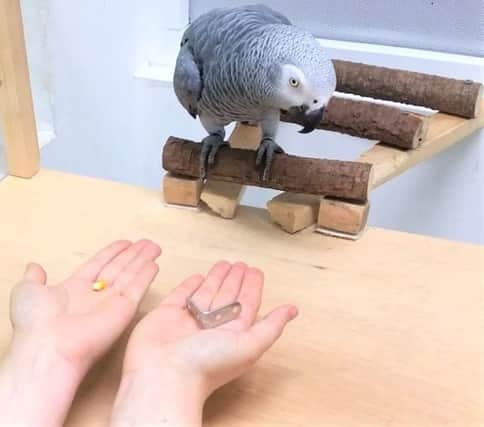Parrots' decision making skills make them the '˜best economists'


But now, it seems that parrots could potentially do a better job, after a study discovered that the birds are capable of making economic decisions to receive greater rewards.
The German investigation found that parrots have the ability to weigh up differently beneficial alternatives to maximise payoff - a key factor in economic decision making.
Advertisement
Hide AdAdvertisement
Hide AdIn the paper, published on Nature.com this week, scientists from the Max Planck Institute for Ornithology explain how the birds were initially taught how to trade three different types of token for food of either low, medium or high value. Subsequently, they were given the choice between an instant food reward and one of the tokens. The parrots only rejected the immediate reward and chose the token if the token’s value corresponded to higher quality food, demonstrating an ability to inhibit their immediate impulses for greater reward in the future.
Researchers say these results show that parrots are capable of deliberate and profit-maximising decisions.
Dr Auguste von Bayern, leader of the study’s comparative cognition group, said: “In our experimental setting we have found that [parrots] are capable of making surprisingly subtle decisions to maximise their payoff while minimising their effort. This is a fascinating indication that such decisions may matter greatly in their natural environment.”